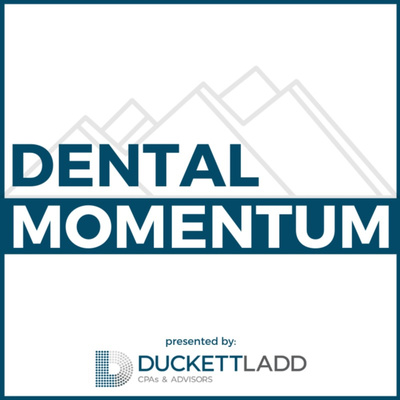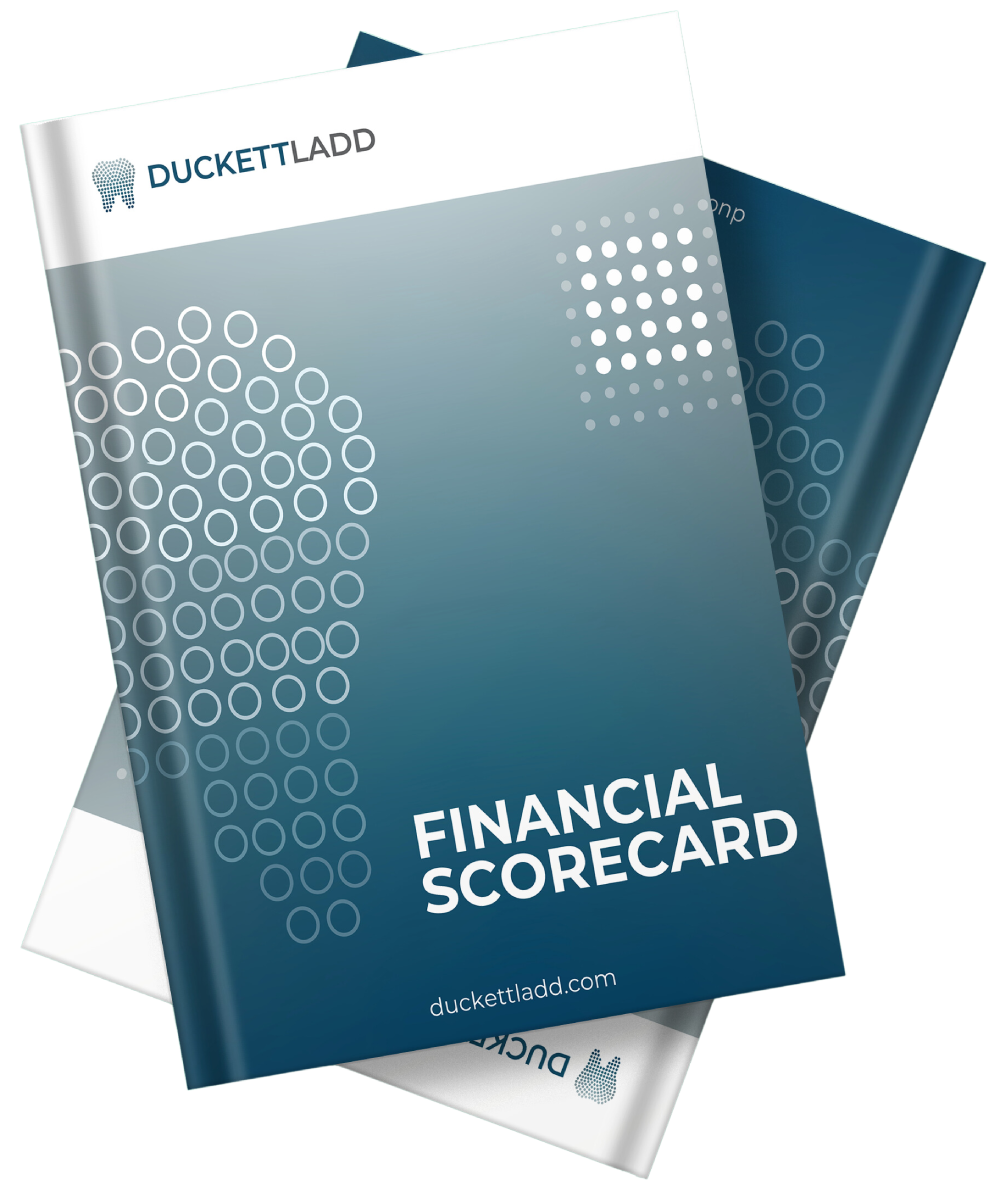Dental practice tax preparation is a crucial aspect of managing your billing system efficiently and ensuring your practice thrives. As a dentist, you already juggle numerous responsibilities, from patient care to staffing concerns. The last thing you want is the stress of muddling through tax paperwork. Understanding key steps can relieve that burden, turning tax season from a headache into a streamlined process.
Here’s what you need to know upfront:
- Know Your Tax Duties: Understand exactly what needs to be reported to the IRS.
- Use Deductions and Credits: Reduce your taxable income legally.
- Plan Taxes Throughout the Year: Don’t wait until tax season to start planning.

Step 1: Understand Your Tax Obligations
Understanding your tax obligations is the first step to mastering dental practice tax preparation. As a dental practice owner, you need to be aware of various tax liabilities and IRS guidelines to ensure compliance and avoid penalties.
Tax Liabilities
Tax liabilities refer to the amount of tax you owe to the government. For dentists, these can include:
-
Income Tax: This is based on the revenue your practice generates. Federal tax rates vary from 10% to 37% depending on your income bracket. State taxes will also apply, depending on where your practice is located.
-
Self-Employment Tax: If you’re self-employed, you’ll need to pay Social Security and Medicare taxes. This is often a surprise for new practice owners, so plan accordingly.
-
Sales Tax: While dental services are typically not subject to sales tax, items sold to patients, like dental supplies, might be. Misunderstanding this can lead to underpayment and potential audits.
IRS Guidelines
The IRS requires that all expenses claimed as deductions be both “ordinary and necessary” for your business. This can be a bit vague, so it’s crucial to stay updated on what qualifies. Regularly reviewing your expenses can help minimize your tax liability.
For example, continuing education expenses can often be deducted, but you’ll need proper documentation. This includes certification renewals and industry advancements. Keeping thorough records is key to utilizing these deductions fully.
Compliance
Compliance is about following all the rules and regulations set by the IRS. Non-compliance can lead to audits, fines, or worse. To stay compliant:
-
Keep Accurate Records: Maintain detailed records of all income and expenses. This not only helps during tax filing but also ensures you’re prepared in case of an audit.
-
Stay Informed: Tax laws change frequently. Keeping up with these changes can prevent costly mistakes. Consider subscribing to newsletters or working with a specialized CPA to stay updated.
-
Consult Professionals: Engaging with a dental CPA can offer peace of mind. They can help you understand complex tax codes and find the best strategies for your practice.
Navigating tax obligations might seem daunting, but breaking them down into manageable parts can make the process smoother. By understanding your liabilities, following IRS guidelines, and ensuring compliance, you set a strong foundation for effective dental practice tax preparation.
Next, we’ll explore how leveraging tax deductions and credits can further improve your tax strategy.
Step 2: Leverage Tax Deductions and Credits
Once you’ve got a handle on your tax obligations, it’s time to focus on leveraging tax deductions and credits. These tools can significantly improve your tax efficiency, saving your dental practice money and boosting your bottom line.
Understanding Deductions
Deductions reduce your taxable income, which means you owe less tax. For dental practices, there are several common deductions you can take advantage of:
-
Equipment and Depreciation: The cost of dental equipment can be deducted over time through depreciation. This includes everything from X-ray machines to dental chairs.
-
Continuing Education: Expenses for courses and certifications that help you and your team stay current in your field are deductible. Keep detailed records to claim these deductions.
-
Staff Expenses: Salaries, benefits, and even staff training can be deducted. This not only reduces your tax liability but also invests in your team’s growth.
-
Office Supplies and Utilities: Everyday expenses like dental supplies, utilities, and even software subscriptions are deductible.
Exploring Tax Credits
Tax credits are even more valuable than deductions because they directly reduce the amount of tax you owe. For example:
-
Lifetime Learning Credit: This credit can be used for continuing education expenses, allowing you to improve your practice while saving on taxes. Proper documentation is essential to claim this credit.
-
Childcare Credits: If you provide childcare for your employees, you might qualify for additional tax credits.
Maximizing Tax Efficiency
To truly maximize your tax efficiency, consider these strategies:
-
Plan Your Purchases: Timing your equipment purchases can maximize deductions. Consider buying equipment at the end of the fiscal year to take advantage of depreciation sooner.
-
Review Your Business Structure: Sometimes, changing your business structure can provide tax benefits. For instance, many dental practices find that an S corporation structure offers significant tax advantages.
-
Keep Meticulous Records: Thorough documentation is crucial for claiming deductions and credits. Use accounting software to track expenses and simplify the process.
Leveraging deductions and credits is a powerful way to improve your dental practice tax preparation. By understanding what’s available and keeping detailed records, you can reduce your tax burden and reinvest those savings back into your practice.
Up next, we’ll dive into strategic tax planning to align with your financial goals and further reduce your tax liabilities.
Step 3: Implement Strategic Tax Planning
Strategic tax planning is your roadmap to aligning your financial goals with tax reduction strategies. It’s not just about filing taxes; it’s about proactively managing your finances throughout the year to minimize your tax burden.
Setting Financial Goals
Before diving into tax strategies, it’s crucial to define your financial goals. Are you looking to expand your practice, invest in new equipment, or save for retirement? Clear goals will guide your tax planning efforts.
-
Growth and Expansion: If you’re planning to expand, consider how tax incentives for capital investments can support your goals. Investing in new technology or additional locations can offer substantial tax benefits.
-
Retirement Savings: Maximizing contributions to retirement accounts like a 401(k) not only prepares you for the future but also reduces your taxable income today.
Proactive Tax Reduction Strategies
To effectively reduce your tax liabilities, consider these proactive strategies:
-
Timing Income and Expenses: Adjusting when you receive income or pay expenses can impact your tax liability. For instance, deferring income to the next year or accelerating expenses into the current year can optimize your tax position.
-
Entity Structure Optimization: Review your business structure to ensure it’s tax-efficient. An S corporation, for example, might offer savings by minimizing self-employment taxes.
-
Use Trusts and Asset Transfers: Advanced strategies like trusts and asset transfers can significantly reduce taxes. These require careful planning and consultation with a specialized dental CPA to ensure compliance and effectiveness.
Regular Financial Review
Regularly reviewing your financial situation is key to effective tax planning. This involves:
-
Quarterly Check-Ins: Meet with your CPA quarterly to review your financials and adjust your tax strategy as needed. This proactive approach ensures you’re always optimizing for tax savings.
-
Stay Updated on Tax Laws: Tax regulations change frequently. Keeping informed about new laws or incentives can help you adapt your strategy and take advantage of new opportunities.
Strategic tax planning is essential for reducing your tax liabilities while achieving your financial goals. With a proactive approach and the right strategies, you can keep more of your hard-earned money and reinvest it into growing your practice.
Next, we’ll explore how optimizing financial management can further improve your tax efficiency and overall financial health.
Step 4: Optimize Financial Management
Effective financial management is the backbone of a successful dental practice. It involves more than just balancing the books; it’s about ensuring every dollar is working for you. Let’s explore key areas like bookkeeping, cash flow, and financial statements.
Mastering Bookkeeping
Bookkeeping is the process of recording all financial transactions in your practice. It might seem tedious, but it’s crucial for understanding your financial health.
-
Stay Organized: Keep meticulous records of income and expenses. This organization simplifies tax preparation and helps identify deductions. As noted by Duckett Ladd, maintaining detailed documentation can uncover potential savings and streamline the tax filing process.
-
Use Technology: Consider investing in accounting software. Automation reduces errors and saves time, allowing you to focus on patient care. Software can also provide real-time insights into your financial status.
Managing Cash Flow
Cash flow is the lifeblood of your practice. It’s essential to have a steady flow to cover expenses and invest in growth.
-
Monitor Regularly: Keep an eye on cash inflows and outflows. Understanding your cash flow cycle helps in planning for periods of low income or unexpected expenses.
-
Plan for Taxes: Set aside funds for tax payments throughout the year to avoid last-minute scrambles. As suggested in the research, dentists often need to pay quarterly estimated taxes. Failing to plan can result in penalties.
Analyzing Financial Statements
Your financial statements tell the story of your practice’s health. They include the balance sheet, income statement, and cash flow statement.
-
Interpret Key Metrics: Learn to read and understand key performance indicators (KPIs) such as net profit margin and debt-to-equity ratio. These metrics provide insights into profitability and financial stability.
-
Regular Reviews: Schedule regular reviews of your financial statements. This practice helps in assessing progress toward financial goals and adjusting strategies as needed.
Optimizing financial management is not just about keeping the lights on. It’s about making informed decisions that improve the efficiency and profitability of your dental practice. With robust bookkeeping, effective cash flow management, and insightful financial analysis, you’re well on your way to mastering dental practice tax preparation.
Next, we’ll discuss the benefits of consulting with a dental CPA to further refine your tax strategy and financial management.
Step 5: Consult with a Dental CPA
When it comes to dental practice tax preparation, working with a dental CPA can be a game-changer. These specialized accountants understand the unique financial landscape of dental practices and can provide custom tax strategies to help you save money and grow your practice.
Why Choose a Dental CPA?
A dental CPA offers expertise that goes beyond general accounting. They are familiar with the specific challenges and opportunities in the dental industry. This means they can offer insights that a general CPA might miss.
-
Industry Expertise: Dental CPAs know the ins and outs of dental practice operations, from patient billing to equipment purchases. This specialized knowledge allows them to identify tax deductions and credits specific to dental practices.
-
Strategic Tax Planning: With a dental CPA, you can develop a tax strategy that aligns with your practice’s financial goals. They can help you maximize deductions, use tax credits, and plan for future tax liabilities, ensuring you’re not paying more than necessary.
Benefits of Specialized Accounting
Working with a dental CPA can improve your practice’s financial health in several ways:
-
Custom Advice: Dental CPAs provide personalized guidance based on your practice’s unique financial situation. Whether it’s choosing the right entity structure or planning for retirement, they offer solutions that fit your needs.
-
Proactive Management: A dental CPA doesn’t just help during tax season. They work with you year-round to monitor financial performance and adjust strategies as needed. This proactive approach can lead to significant tax savings and improved cash flow.
Building a Tax Strategy
Creating an effective tax strategy is crucial for minimizing tax liabilities and maximizing profitability.
-
Plan for Equipment Purchases: As noted in the research, leveraging Section 179 deductions for equipment purchases can provide immediate tax benefits. A dental CPA can help you steer the eligibility criteria and timing to optimize these deductions.
-
Use Retirement Plans: Dental CPAs can advise on setting up tax-advantaged retirement plans like SEP-IRAs or Solo 401(k)s. These plans not only secure your future but also offer current tax savings.
Consulting with a dental CPA is more than just about compliance; it’s about leveraging their expertise to improve your practice’s financial performance. With their help, you can steer the complexities of tax laws, reduce liabilities, and focus on what you do best—caring for your patients.
Next, we’ll address some frequently asked questions about dental practice tax preparation to further clarify this essential process.
Frequently Asked Questions about Dental Practice Tax Preparation
Is a dental practice loan tax deductible?
Yes, the interest paid on a dental practice loan is generally tax deductible. When you take out a loan to purchase equipment or expand your practice, the interest on that loan can be deducted as a business expense. This deduction can significantly reduce your taxable income, helping you save money during tax season.
However, it’s crucial to keep accurate records of the loan and interest payments. A dental CPA can assist in ensuring all documentation is in order and that you’re maximizing this deduction.
What are common tax deductions for dental practices?
Dental practices have several potential deductions that can help reduce their tax liability. Some common deductions include:
-
Equipment and Depreciation: The cost of dental equipment and its depreciation over time can be deducted. This includes everything from dental chairs to X-ray machines.
-
Continuing Education: Expenses for courses and certifications that keep you and your staff updated with industry standards can be deducted, often under the Lifetime Learning Credit.
-
Employee Salaries and Benefits: Wages, health insurance, and retirement plan contributions for staff are deductible business expenses.
-
Office Expenses: Rent, utilities, and office supplies are also deductible, as they are necessary for running your practice.
These deductions can add up, significantly lowering your taxable income. It’s essential to work with a dental CPA to ensure you’re taking advantage of all available deductions.
How can a dental CPA help reduce tax liabilities?
A dental CPA is instrumental in developing a tax strategy that minimizes liabilities and maximizes savings. Here’s how they can help:
-
Identifying Deductions and Credits: Dental CPAs are well-versed in the specific deductions and credits available to dental practices. They ensure you don’t miss out on any potential savings.
-
Strategic Tax Planning: By aligning your financial goals with tax strategies, a dental CPA can help you plan for future liabilities and avoid surprises at tax time.
-
Year-Round Support: Unlike general accountants, dental CPAs provide ongoing support, adjusting your tax strategy as needed throughout the year to reflect changes in your practice or tax laws.
By partnering with a dental CPA, you can focus on providing excellent patient care while they handle the complexities of tax planning and compliance. This collaboration not only reduces your tax liabilities but also contributes to the long-term success of your practice.
Conclusion
Navigating the complexities of dental practice tax preparation is no small feat. But with the right partner, it becomes a manageable and even rewarding process. That’s where Duckett Ladd steps in, offering a personalized strategy custom to your practice’s unique needs.
At Duckett Ladd, we understand that every dental practice is different. Our approach is not about one-size-fits-all solutions. Instead, we focus on creating a customized plan that aligns with your goals and ensures sustainable success. Whether it’s maximizing deductions, optimizing financial management, or implementing strategic tax planning, our team is dedicated to helping your practice thrive.
Our expertise in dental accounting and tax strategy means you can trust us to handle the intricate details. We stay updated with the latest tax laws, ensuring compliance while minimizing liabilities. This allows you to concentrate on what you do best—providing exceptional care to your patients.
By choosing Duckett Ladd, you’re not just getting a service provider. You’re gaining a partner who is committed to your long-term success. Our comprehensive financial management, strategic tax planning, and practice valuation services are designed to improve your practice’s profitability and value.
Ready to take the next step? Explore our services and find how we can help you master your dental practice’s financial future.










